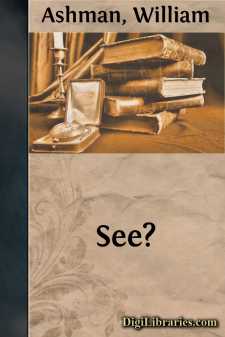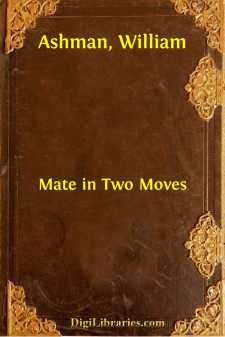Categories
- Antiques & Collectibles 13
- Architecture 36
- Art 48
- Bibles 22
- Biography & Autobiography 813
- Body, Mind & Spirit 142
- Business & Economics 28
- Children's Books 14
- Children's Fiction 11
- Computers 4
- Cooking 94
- Crafts & Hobbies 4
- Drama 346
- Education 46
- Family & Relationships 57
- Fiction 11829
- Games 19
- Gardening 17
- Health & Fitness 34
- History 1377
- House & Home 1
- Humor 147
- Juvenile Fiction 1873
- Juvenile Nonfiction 202
- Language Arts & Disciplines 88
- Law 16
- Literary Collections 686
- Literary Criticism 179
- Mathematics 13
- Medical 41
- Music 40
- Nature 179
- Non-Classifiable 1768
- Performing Arts 7
- Periodicals 1453
- Philosophy 64
- Photography 2
- Poetry 896
- Political Science 203
- Psychology 42
- Reference 154
- Religion 513
- Science 126
- Self-Help 84
- Social Science 81
- Sports & Recreation 34
- Study Aids 3
- Technology & Engineering 59
- Transportation 23
- Travel 463
- True Crime 29
The Old Die Rich
by: William Ashman
Description:
Excerpt
ou again, Weldon," the Medical Examiner said wearily.
I nodded pleasantly and looked around the shabby room with a feeling of hopeful eagerness. Maybe this time, I thought, I'd get the answer. I had the same sensation I always had in these places—the quavery senile despair at being closed in a room with the single shaky chair, tottering bureau, dim bulb hanging from the ceiling, the flaking metal bed.
There was a woman on the bed, an old woman with white hair thin enough to show the tight-drawn scalp, her face and body so emaciated that the flesh between the bones formed parchment pockets. The M.E. was going over her as if she were a side of beef that he had to put a federal grade stamp on, grumbling meanwhile about me and Sergeant Lou Pape, who had brought me here.
"When are you going to stop taking Weldon around to these cases, Sergeant?" the M.E. demanded in annoyance. "Damned actor and his morbid curiosity!"
For the first time, Lou was stung into defending me. "Mr. Weldon is a friend of mine—I used to be an actor, too, before I joined the force—and he's a follower of Stanislavsky."
The beat cop who'd reported the D.O.A. whipped around at the door. "A Red?"
let Lou Pape explain what the Stanislavsky method of acting was, while I sat down on the one chair and tried to apply it. Stanislavsky was the great pre-Revolution Russian stage director whose idea was that actors had to think and feel like the characters they portrayed so they could be them. A Stanislavskian works out everything about a character right up to the point where a play starts—where he was born, when, his relationship with his parents, education, childhood, adolescence, maturity, attitudes toward men, women, sex, money, success, including incidents. The play itself is just an extension of the life history created by the actor.
How does that tie in with the old woman who had died? Well, I'd had the cockeyed kind of luck to go bald at 25 and I'd been playing old men ever since. I had them down pretty well—it's not just a matter of shuffling around all hunched over and talking in a high cracked voice, which is cornball acting, but learning what old people are like inside—and these cases I talked Lou Pape into taking me on were studies in senility. I wanted to understand them, know what made them do what they did, feel the compulsion that drove them to it.
The old woman on the bed, for instance, had $32,000 in five bank accounts ... and she'd died of starvation.
You've come across such cases in the news, at least a dozen a year, and wondered who they were and why they did it. But you read the items, thought about them for a little while, and then forgot them. My interest was professional; I made my living playing old people and I had to know as much about them as I could.
That's how it started off, at any rate. But the more cases I investigated, the less sense they made to me, until finally they were practically an obsession.
Look, they almost always have around $30,000 pinned to their underwear, hidden in mattresses, or parked in the bank, yet they starve themselves to death....












